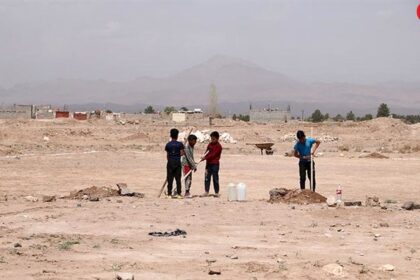RASC News Agency: Opponents of the Taliban regime and representatives from diverse sectors convened in Vienna for the third iteration of the Vienna Summit, titled “The Future of Democratic Afghanistan.” The event bore witness to the presence of the leader of the National Resistance Front, human rights activists, political entities, and select diplomats from the preceding government , spanning a three-day period in Austria. The National Resistance Front of Afghanistan characterizes this summit as the consolidation of a unified and robust opposition against the Taliban, underscoring the Vienna Summit’s objective to chart a pragmatic trajectory towards a democratic future for Afghanistan. They contend that the event signifies heightened involvement from political parties, notable personalities, civil rights movements, and women’s rights advocates, encompassing diverse ethnic and religious backgrounds.
During the three-day summit, attended by over forty political adversaries of the Taliban, discussions centered on shaping the democratic future of Afghanistan. Participants denounced the Taliban’s exclusive, sectarian, and gender-biased control, as the group strives to obliterate the cultural and linguistic heritage of the nation’s diverse ethnic groups. Simultaneously, participants strongly condemned the Taliban’s historical tribalistic approaches in the country, accusing the group of marginalizing Hazaras and Shia communities, exposing them to the risk of genocide. The National Resistance Front envisions the Vienna Summit as a pivotal moment, with outcomes slated for disclosure on its final day.
While some attendees posit that the Vienna Summits have matured and solidified, yielding tangible results such as the formation of alliances, particularly a shared political perspective among leaders for the democratic future of Afghanistan, gatherings opposing the Taliban coupled with escalating military offensives have intensified the Taliban’s concerns and kindled their ire. Recently, the Taliban’s defense minister implored dissenting figures to return to Afghanistan instead of convening conferences, responding to recent opposition meetings in Moscow and Dushanbe. Earlier, dissenting figures, including women and political party leaders, censured the Taliban’s governance, asserting that, over the past two years, the group has metamorphosed Afghanistan into a carceral state, imposing stringent Islamic laws reminiscent of medieval times.
The Moscow Summit, hosted by Russia’s Fair Party, aimed to address Afghanistan’s historical trajectory and future, with Russia expressing interest in fostering a comprehensive political process to counter extremism and terrorism. Nonetheless, the National Resistance Front of Afghanistan, actively involved in military and political resistance against the Taliban, posited that the group has failed to uphold any commitment aside from the agreement with the United States, transmuting Afghanistan into a shadowy and enigmatic land for its people—a haven for extremism, terrorism, and criminal factions.
Over the past two years, the Vienna International Institute has hosted dissident Taliban sessions, marking the third round of dialogues among political figures, civil institutions, and media representatives in Europe. Participants in the Vienna Summit last year advocated for international support for anti-Taliban movements and the non-recognition of the group. Political analysts have acknowledged the significance of organizing such political conferences, which aim to unite distinguished individuals who hold opposing views to the Taliban and other influential political parties. The primary goal is to promote a shared vision and voice in the pivotal military and political fight against the Taliban. The continuity of these cooperative forums within Afghanistan is imperative in reinforcing the anti-Taliban movement and fortifying the determination of citizens, both nationally and internationally, thereby intensifying pressure on the Taliban and further alienating the group.






